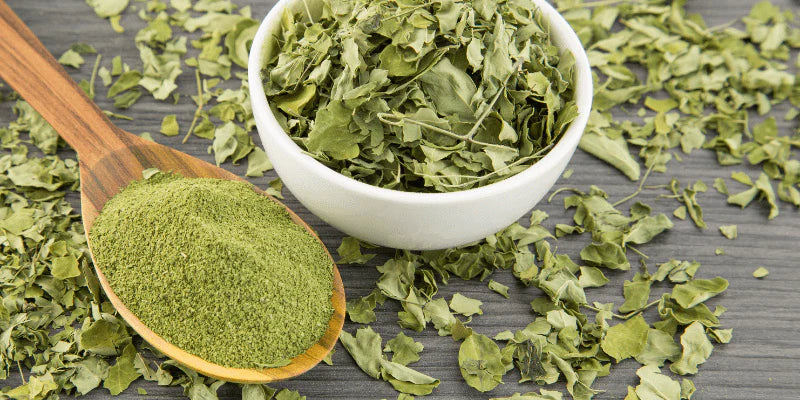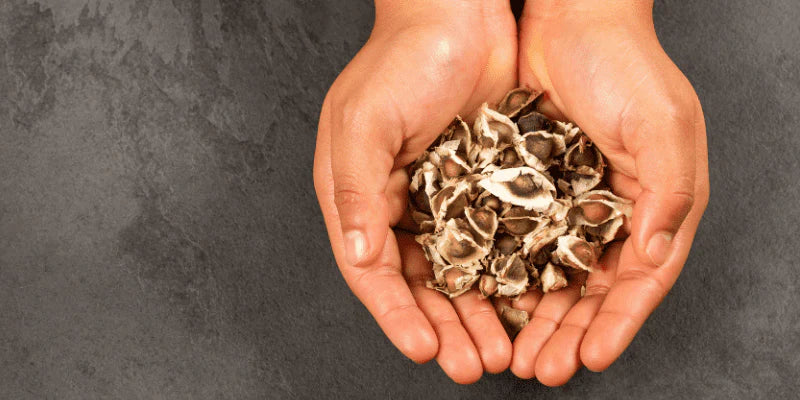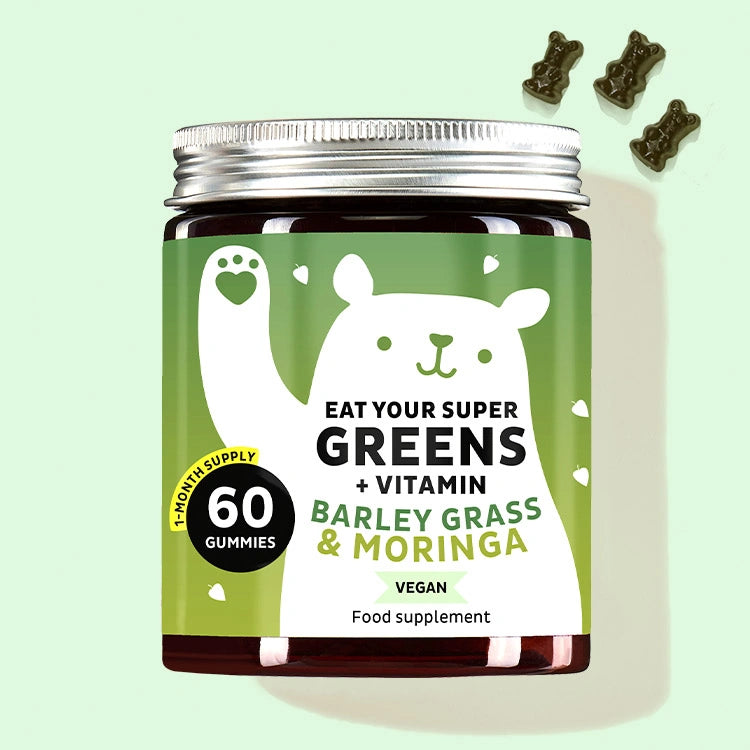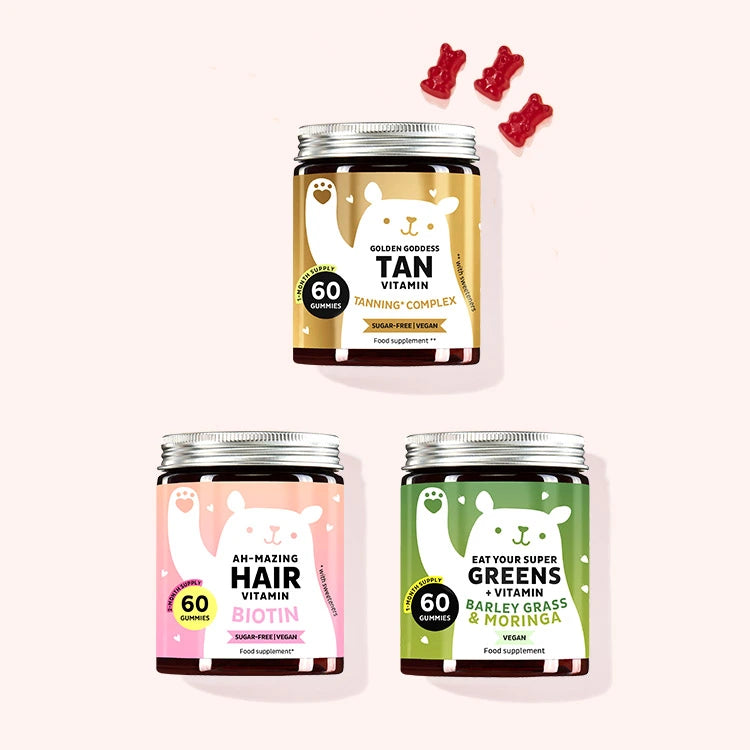Moringa - All you need to know
WHAT IS MORINGA?
Moringa is a horseradish tree from the Himalayan region of northern India. It is one of the most nutrient-rich plants on earth and is widespread in Africa, Arabia, Asia and Latin America. Due to the high content of mustard oil glycosides, the roots smell similar to horseradish. The leaves also have a spicy aftertaste. For this reason, it was often used as a horseradish substitute. The moringa tree is also frequently called a miracle tree because almost all parts of the tree can be utilised, and the leaves are also very rich in nutrients. In addition, moringa is nowadays considered one of the superfoods and is also used for medicinal purposes. According to Indian folk belief, moringa is said to be able to cure more than 300 diseases. Because the tree is also very drought-resistant, it is called the "tree of immortality".

WHAT VITAMINS DOES MORINGA CONTAIN?
Moringa is the power food from India. It is one of the superfoods and has a very high nutrient density. The leaves of the moringa plant have a very high protein, vitamin A and calcium content. In addition, moringa also receives vitamins C, E, and B and trace elements, such as zinc, omega-3, omega-6 and omega-9. The moringa plant also contains both magnesium and iron (NIH).
For example, the iron content in moringa is 25 times as much as spinach, 17 times as much calcium as milk, and seven times as much vitamin C as one orange. The values refer to moringa in dried, concentrated form (NIH)
But our Eat Your Super Green Vitamins also contain moringa.
EFFECTS OF MORINGA
Moringa has an antioxidant effect and thus protects against free radicals, and it is said to prevent cancer and accelerate cell renewal. Moringa belongs to the cruciferous family and, therefore, contains cancer-preventing phytochemicals. They are known to slow down existing tumours. Moringa is also said to strengthen the immune system and stimulate blood circulation and metabolism. The hormone zeatin also facilitates the absorption of the plant's valuable ingredients. The secondary plant substances, mainly found in the leaves, are said to lower blood pressure and cholesterol levels and help against type 2 diabetes. Moringa is also said to support hormonal fluctuations, be anti-inflammatory and boost digestion and metabolism. Because the polyunsaturated fatty acids of the plant protect the inner walls of the arteries from deposits and can thus lower LDL cholesterol, Moringa is also an aid in the prevention of arteriosclerosis, stroke and heart attack (NIH).

MORINGA SEEDS FOR WATER PURIFICATION
Some studies have proven that the seeds of the moringa plant can purify drinking water. Especially in the countries where the moringa tree grows, drinking water is a precious commodity. Yet the water is often polluted, which can lead to numerous diseases. In laboratory tests, it was discovered that moringa seeds have the special ability to filter suspended matter and germs from the water so that the water becomes more drinkable. This ability, combined with the drought-resistant property of the tree, makes the moringa plant even more interesting for Africa.

NASSIM JAMALZADEH:
"Moringa is rightly considered a superfood because it is one of the most nutrient-rich plants. It not only has an antioxidant effect and can thus protect the cells from free radicals, but it also has a positive effect on the immune system and can boost metabolism, according to studies. Feel free to try it out and incorporate moringa into your diet. If you don't like the taste of moringa, then I have another tip for you: try our Eat your Super Greens with moringa. I'm looking forward to your feedback."
FAQs about Moringa
FAQs about Moringa
A general dosage recommendation cannot be given as the products' ingredients differ. For dietary supplements marketed in the EU, it is obligatory to specify the exact amount. Therefore, the indicated daily dose of the respective product should not be exceeded.
Caution is advised when taking medications (immunomodulators, anti-hormone therapy), as interactions may occur. It should, therefore, be clarified in advance with a doctor.
Amino acids are particularly important for athletes, as they promote muscle building and deacidification. Moringa is also rich in iron and vitamin C. These can stimulate haemoglobin formation and oxygenation (NIH).
The bitter substances of the moringa plant help accelerate digestion and thus support fat burning. Because moringa also has a high protein content, it ensures that satiety lasts longer (NIH).
As a dietary supplement, moringa comes in various forms: Powder, capsules, pellets or vitamin bears. Moringa leaves are also often used as tea. The powder of the leaves can be added to various dishes. The seeds are processed into moringa oil suitable for frying and cooking.
Let customers speak for us
OUR BEARS WITH MORINGA
OUR BEARS WITH MORINGA


















